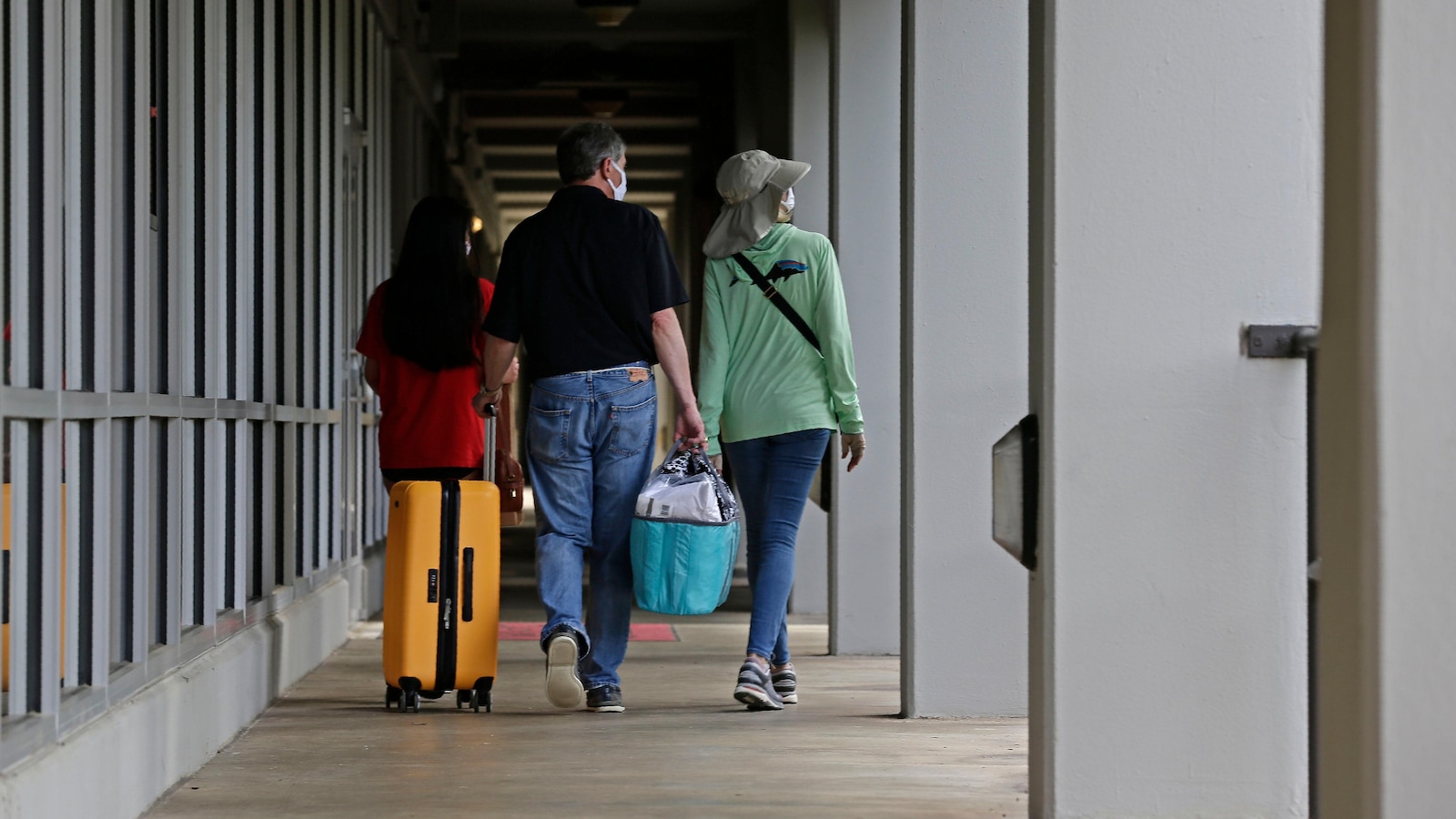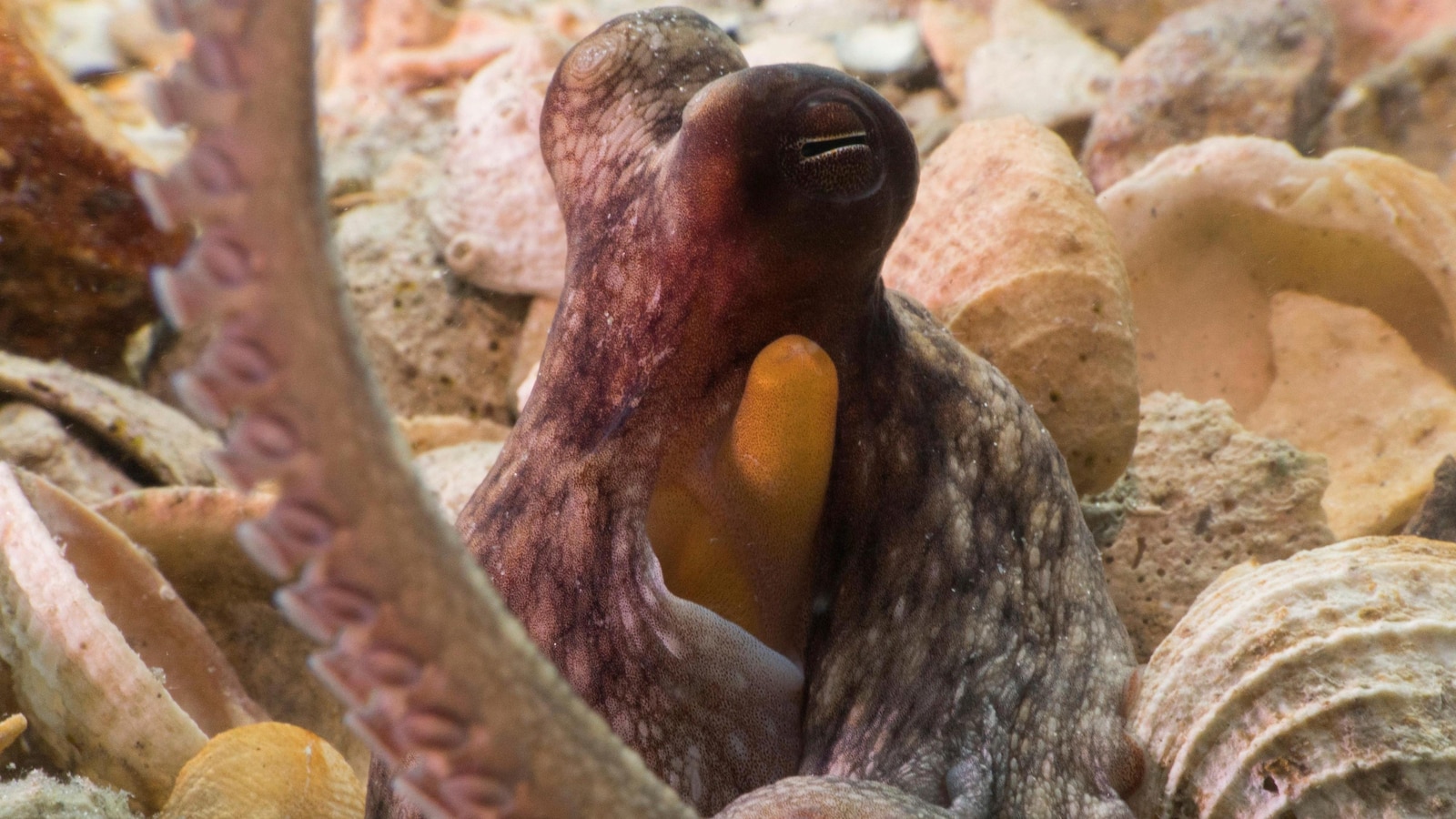It’s that time of year when many parents across the U.S. see their kids head off to college or leave home to start their working lives. For parents and guardians, experts say, the separation from their children can cause mixed feelings of loss, grief, loneliness, relief and freedom and can lead to unhealthy thoughts and behaviors.
They’re the classic signs of what is known as “empty nest syndrome.”
While not a clinical diagnosis, it can create intense long-term feelings that affect mental health, emotional well-being and relationships. Experts say acknowledging changing emotions, reconnecting with loved ones and finding new hobbies are all ways to prepare for this transition.
Here’s what experts say:
Parents and guardians can feel a range of emotions during different stages of their children’s lives. But experts say it is important to acknowledge that the time when children move out on their own can be more intense compared to the first preschool drop off, for example. The uncertainty surrounding when parents might see their children again is part of what makes it so gut wrenching.
Julie Gottman, a clinical psychologist and co-founder of the Gottman Institute, said regardless of your relationship with the children who are leaving, it is helpful to nurture or build relationships with people other than your children to combat loneliness. This is especially important for single parents or guardians or people whose daily lives and schedules revolved around their kid’s lives and activities.
“One of the hardest things for empty nesters is understanding that your children need separation,” she said. “It will be hard but call your friend instead.”
Diane Bergantinos, 45, said her friends have warned her about how hard dropping your child off to school can be, but knows she has supportive family and friends she can call on if she needs company. Bergantinos, a newly single parent in Honolulu, Hawaii, says she leaves in a week to help her only child move to Oregon for school.
“It’s like having a sick family member. You know their time is limited and you try to prepare yourself mentally and emotionally, but you can’t fully prepare for it until it happens,” she said. “I’m just trying to savor every minute, cherish whatever moments I have left, and not dwell on the fact that he is leaving.”
Some experience empty nest syndrome after children leave home, but the emotions can be overwhelming before the actual move. Gottman says if the emotions begin to mirror symptoms of depression, it might be time to see a therapist or counselor.
When you co-parent, it is likely that each person is experiencing some of the same emotions, but experts say that those shared feelings should be addressed with each other and, if needed, by professionals.
Not everything was sad for Mike Marlow and his wife, Barbara, a couple in their 50s who over the years have had three children move out of their home in Flagstaff, Arizona.
“I remember Barb and I looking at each other over at our island in our kitchen going, ‘Hi there!’” he said, adding that they have been so thankful that they maintained a healthy and happy relationship with each other over the course of raising three children, who are now 29, 25 and 24 years old.
Gottman, who has counseled couples over the years, said the big question empty nesters face is “Who are we?”
“There’s a beautiful thing that can happen to couples. You are able to rediscover who your partner is and the love that you have for them. Now if you have really parented a child since birth together, there is history you have shared of going through the hurdles of raising a child. You’ve shared the worries, the hopes, the dreams, the excitement,” she said.
Gottman said sharing in the experience can also rekindle intimacy in a way adults might not have been able to when children were around.
Marlow said now that the children have moved out, they have had time to date each other again and really spend time on themselves, including working out more, traveling and making future plans.
“We focus so much on our health. We have a routine, we work out, we play pickleball and we also have separate things we work on,” Marlow said.
Experts say developing new routines and learning new hobbies are excellent ways to combat any negative emotions from becoming empty nesters. While many of these hobbies, especially traveling, depend on income, there are creative things parents can do to with the extra time they now have.
“Anywhere you can meet new people will help,” Gottman said. “Not only are you losing your child, you’re also losing the community of parents of your kids’ friends. So, look for group activities where you can meet more people, take an exercise class, take a yoga class, take a painting class, join a choir and sing, and see if your partner is interested in doing those things together.”
For Bergantinos, working is going to keep her busy as a single mom, but she said she plans to continue a therapeutic hobby she started when her son was in high school: lei making.
“I taught myself how to make ribbon leis because I knew his graduation was coming up,” she said. “In Hawaii, leis are giveaways for every special occasion. So I decided to post it on Facebook Marketplace and see what happens.”
Some parents and guardians become empty nesters much later in their children’s lives when they stay through college or their first jobs, especially in intergenerational households.
For the Marlows, it felt like the empty nester title was on and off as one of their children moved back home when he started a job after school in the same city, and another child attended a local university minutes from home. But they said they knew they would continue to be a part of their children’s lives and continue to parent, even if they were away from home, and technology helps with that continued connection.
“To this day, we maintain a lot of interest in their lives. We don’t want to intrude but we want to be there to offer them advice, encouragement, praise, all that kind of stuff,” Marlow said.
___
Mumphrey reported from Flagstaff, Arizona.
Source link






